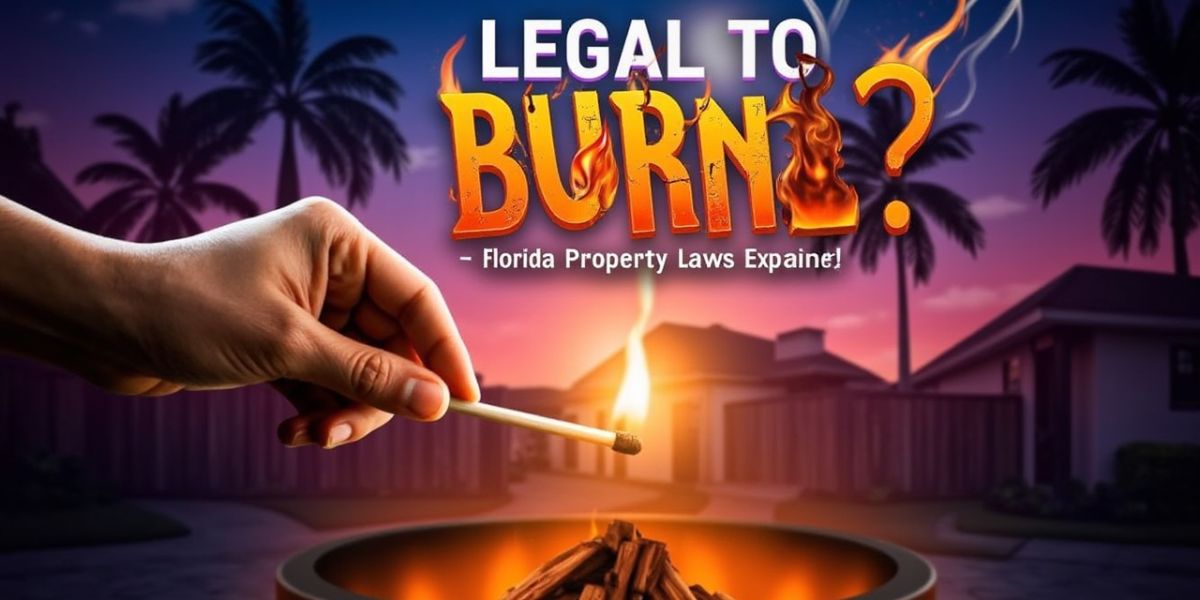Florida’s warm weather and beautiful natural scenery make it an ideal place for outdoor activities, such as private property fires. That said, it is essential to be familiar with the state’s regulations in order to ensure safety and comply with the law.
Rules for the Entire State
Both the Florida Department of Environmental Protection (FDEP) and the Florida Forest Service (FFS) are tasked with the responsibility of monitoring open burning in order to safeguard both the environment and the health of the general population.
During periods of air stagnation advisories or when the weather is unfavorable, burning is typically prohibited.
Local Laws and Permissions
There may be further regulations about open burning that are imposed by local governments. Before starting any fires, property owners ought to consult with municipal authorities.
A burn permit may be necessary in certain regions, particularly for larger flames or for removing rubbish.
Fires for Fun
Under some conditions, small fires such as campfires or bonfires are permitted. They cannot be more than three feet wide or two feet tall. A responsible individual should be in charge of the fire and have fire-extinguishing equipment close at hand.
Your Rights in Texas: What to Do If Your Car Is Towed from Private Property
Prohibited Materials
In Florida, it is against the law to burn domestic rubbish, treated lumber, plastics, rubber, tires, pesticides, chemicals, or paint. These materials have the potential to emit dangerous contaminants into the atmosphere.
Burns for Agriculture and Land Clearing
Burning for agricultural or land clearing purposes is restricted to the location where the debris was produced. It must happen between 9:00 AM EST and one hour before nightfall, and there must be constant supervision and fire extinguishing equipment available.
Your Rights in California: What to Do If Your Car Is Towed from Private Property
Exceptions and Special Cases
Some structures, such as nonresidential farm buildings with limited occupancy, may be excluded from certain fire code standards. Owners are responsible for confirming exemptions with the State Fire Marshal’s office and following other requirements.
Summary
Although it is not unlawful to have fires on properties in Florida, there are a number of laws that must be followed. Property owners must follow state and municipal rules, get licenses if necessary, and ensure fire safety in order to avoid penalties and safeguard the environment.
Source: Is It Illegal to Have a Fire on Your Property in Florida








